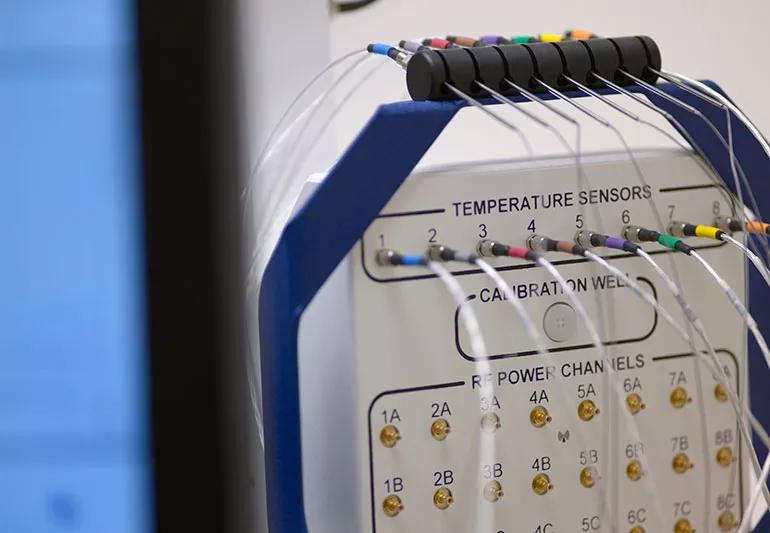Cryotherapy can freeze tissue and kill cancer cells

Here’s a less-known, but effective prostate cancer treatment – freeze the cancer cells.
Advertisement
Cleveland Clinic is a non-profit academic medical center. Advertising on our site helps support our mission. We do not endorse non-Cleveland Clinic products or services. Policy
Cryotherapy for prostate cancer uses cold to freeze prostate tissue and kill the cancer cells.
But it’s not for everyone. It not only works very well for the right cases, but the risk of complications is low.
“It’s minimally invasive and incision-free,” says urologist David Levy, MD,. “In fact, we don’t remove the prostate — it simply turns into scar tissue while preserving normal urinary function.”
Men with early-stage prostate cancer can often benefit from cryotherapy. Doctors also recommend it for patients whose radiation treatments were unsuccessful or if the cancer has come back.
Unfortunately, cryotherapy isn’t for everyone. It may not work for men with large prostates. In those cases, hormone therapy could shrink the gland and make these patients eligible candidates. You should discuss this with your doctor.
Cryotherapy is performed under general anesthesia. Dr. Levy walks through the procedure:
Advertisement
With any prostate cancer treatment, potential side effects can include:
The millimeter precision used for cryotherapy helps minimize these side effects.
When compared with radiation therapy, cryotherapy results in lower risks of altered bowel and bladder function. It also has a significantly lower risk of urinary incontinence compared with current surgical approaches for prostate cancer.
Traditionally, the risk of erectile dysfunction has been higher with cryotherapy compared to surgery or radiation, but newer techniques with nerve-sparing cryotherapy are showing improved results. Be sure to talk with your doctor about your worries.
“When it comes to prostate cancer, one of my biggest concerns is the overtreatment of those who don’t necessarily need it,” says Dr. Levy.
Often times, men whose radiation didn’t work end up on hormone therapy and 15% experience side effects.
Some of these men could benefit from cryotherapy instead of hormone therapy, says Dr. Levy.
While many men who are diagnosed need surgery, there are options that can provide the same outcome.
“That’s why it’s so important for people to learn as much as they can,” says. Dr. Levy.
He suggests talking to your doctor about all the options and asking questions before pursuing treatment.
Advertisement
Learn more about our editorial process.
Advertisement

Most recommended precautions center around minimizing bruising or swelling

Even one drink can have an impact on your cognitive function leading to slurred speech, blurred vision and impaired memory

Understand who may (and may not) benefit

Lorem ipsum dolor sit amet. Et odio Quis vel ipsam omnis eum alias deleniti et placeat impedit non voluptas galisum hic autem enim et cupiditate aliquid. Est beatae quidem non facilis autem ut commodi nisi aut tempore rerum et dolores voluptatem cum enim optio id sapiente quasi. Ad laboriosam officiis 33 cupiditate sequi ea voluptatum consectetur qui necessitatibus voluptate et quasi doloremque et facere explicabo quo explicabo officia

Seeking help through therapy can be an important step in improving your quality of life when you have UC

Type 2 diabetes isn’t inevitable with these dietary changes

Applying a hot or cold compress can help with pain